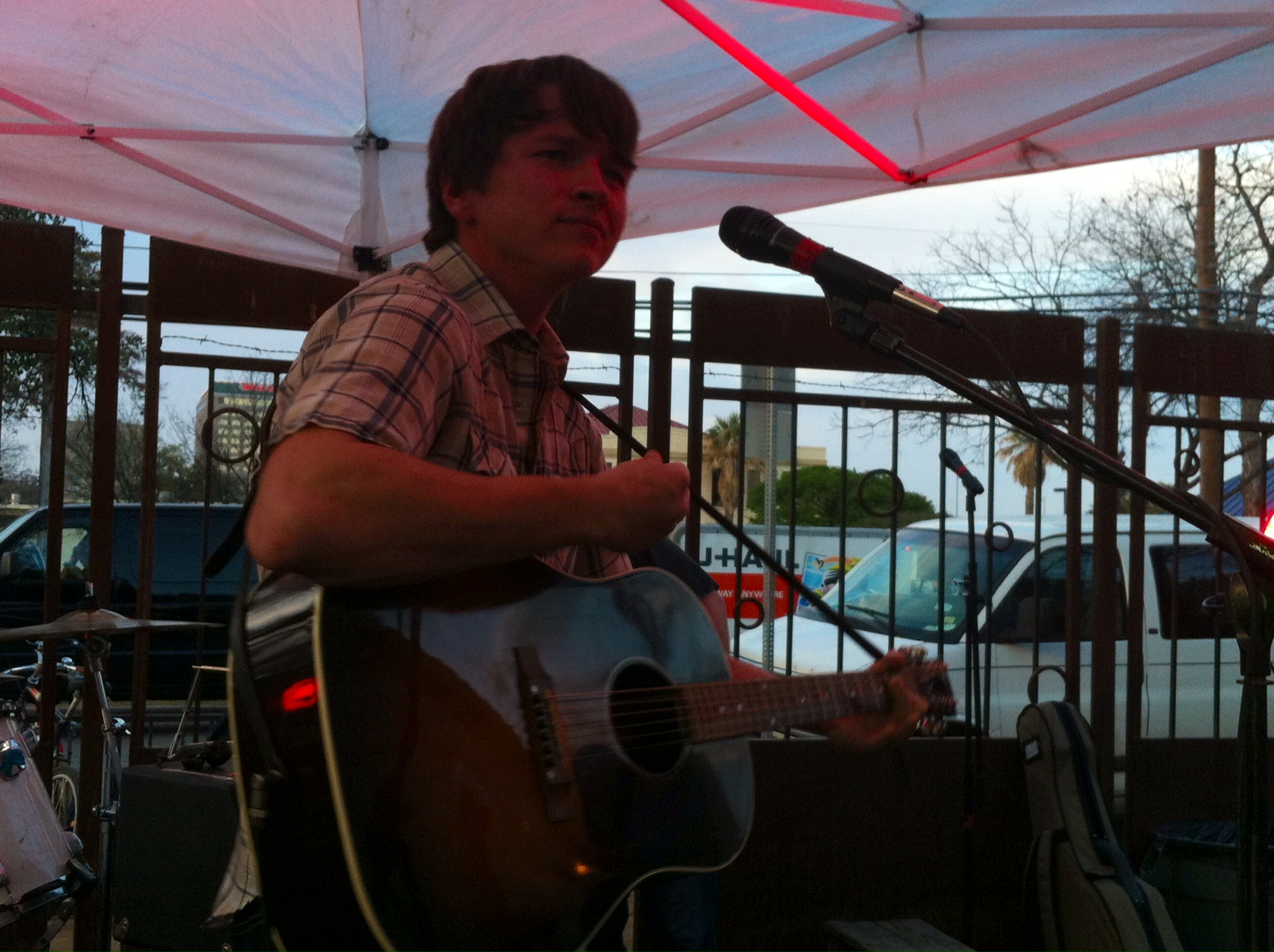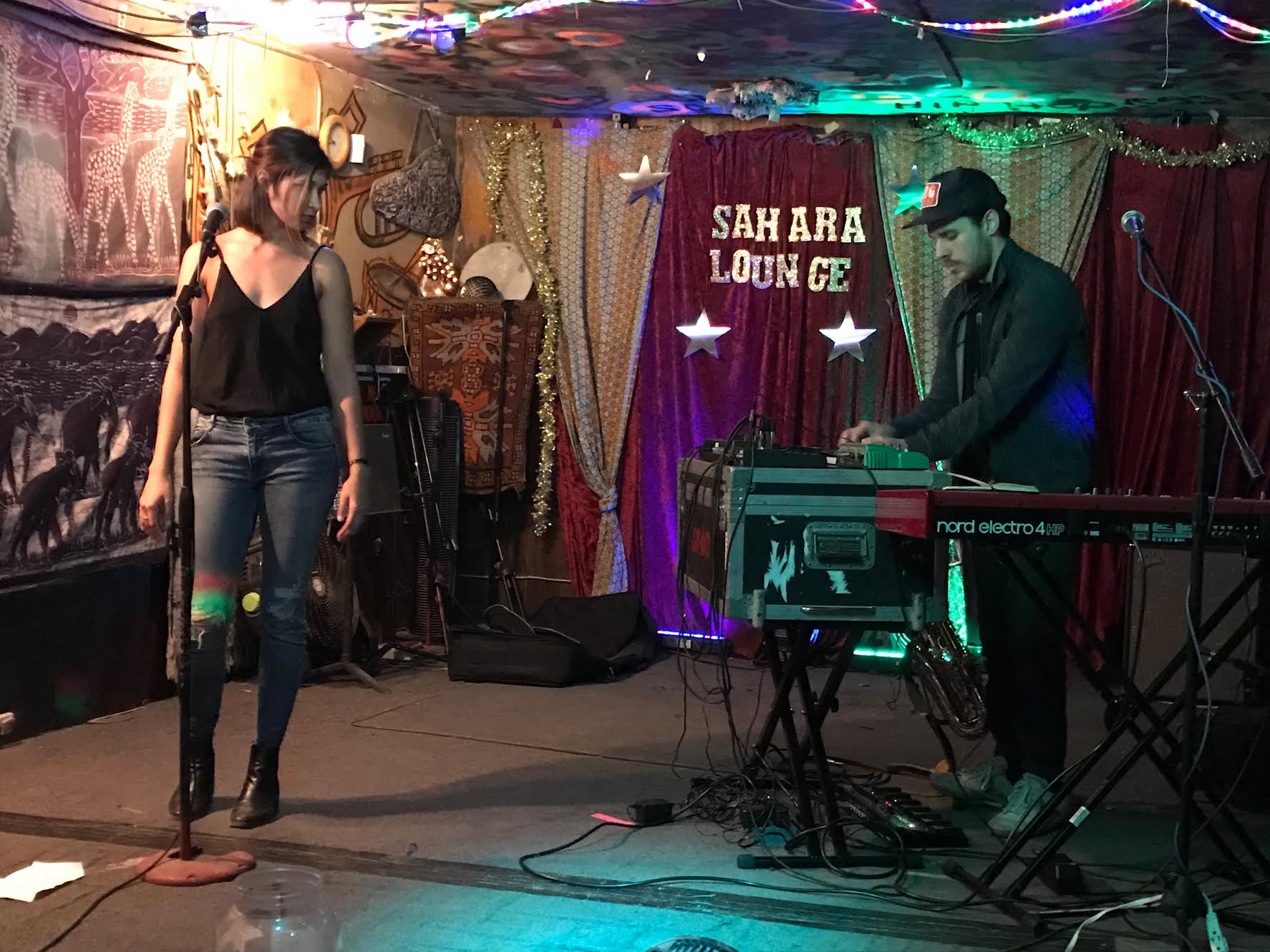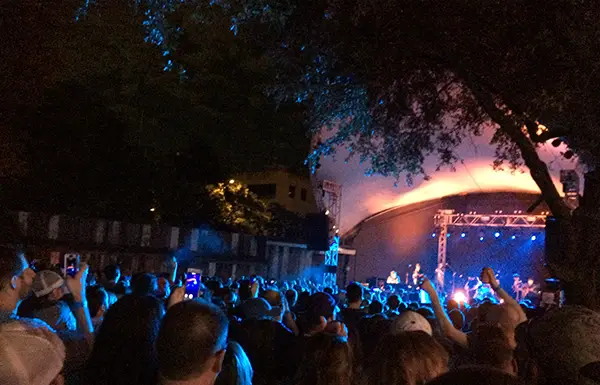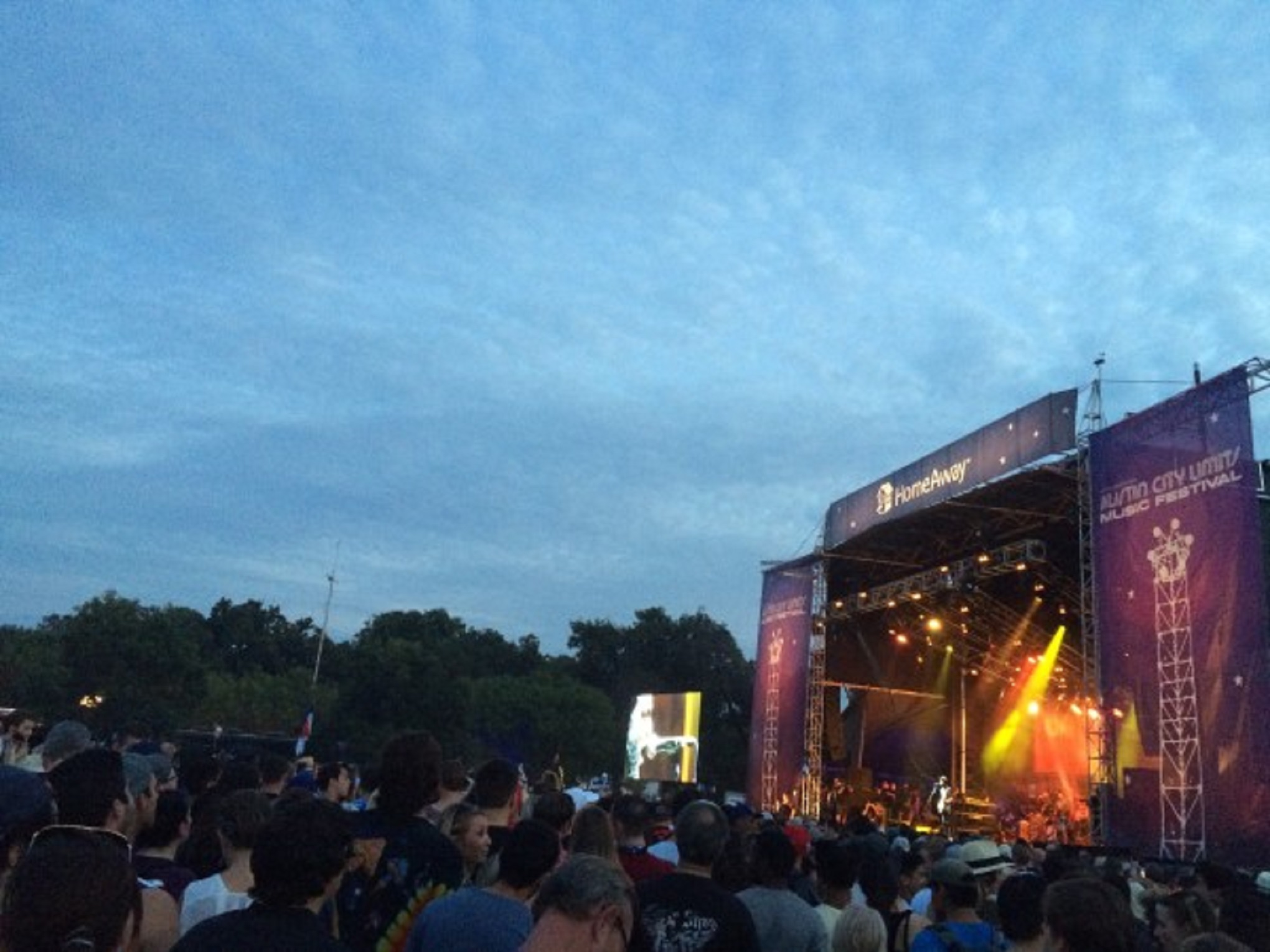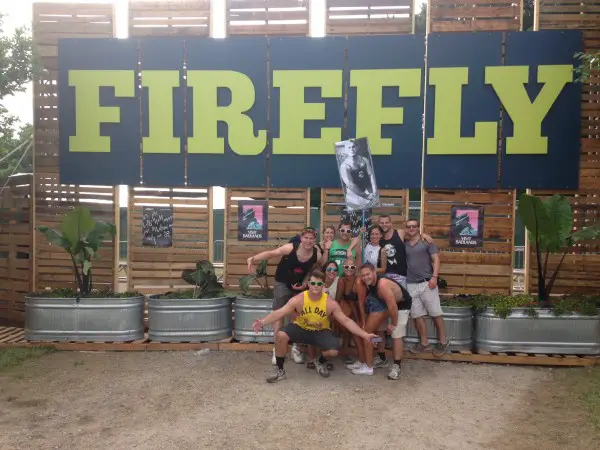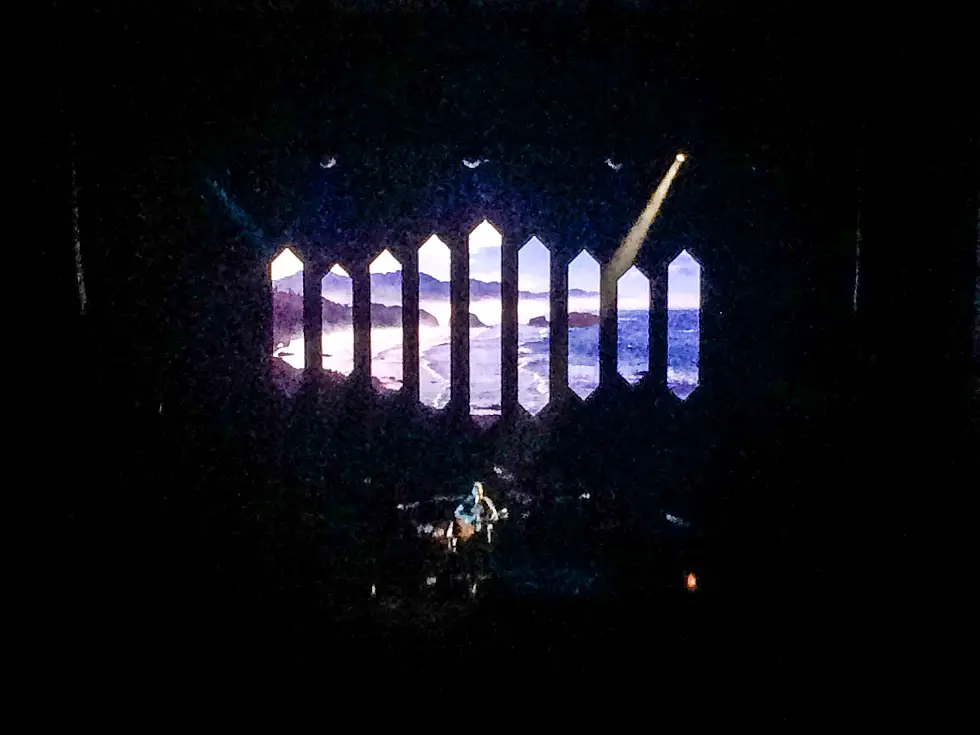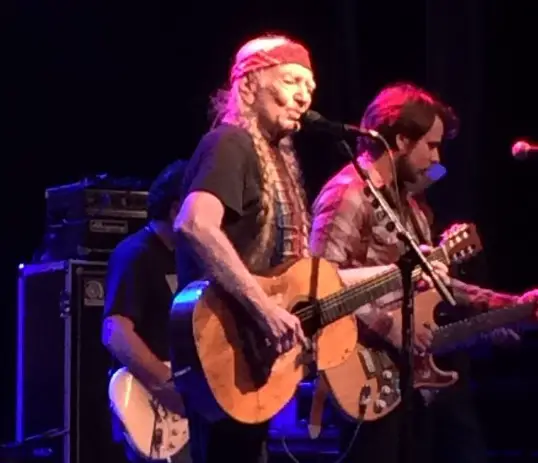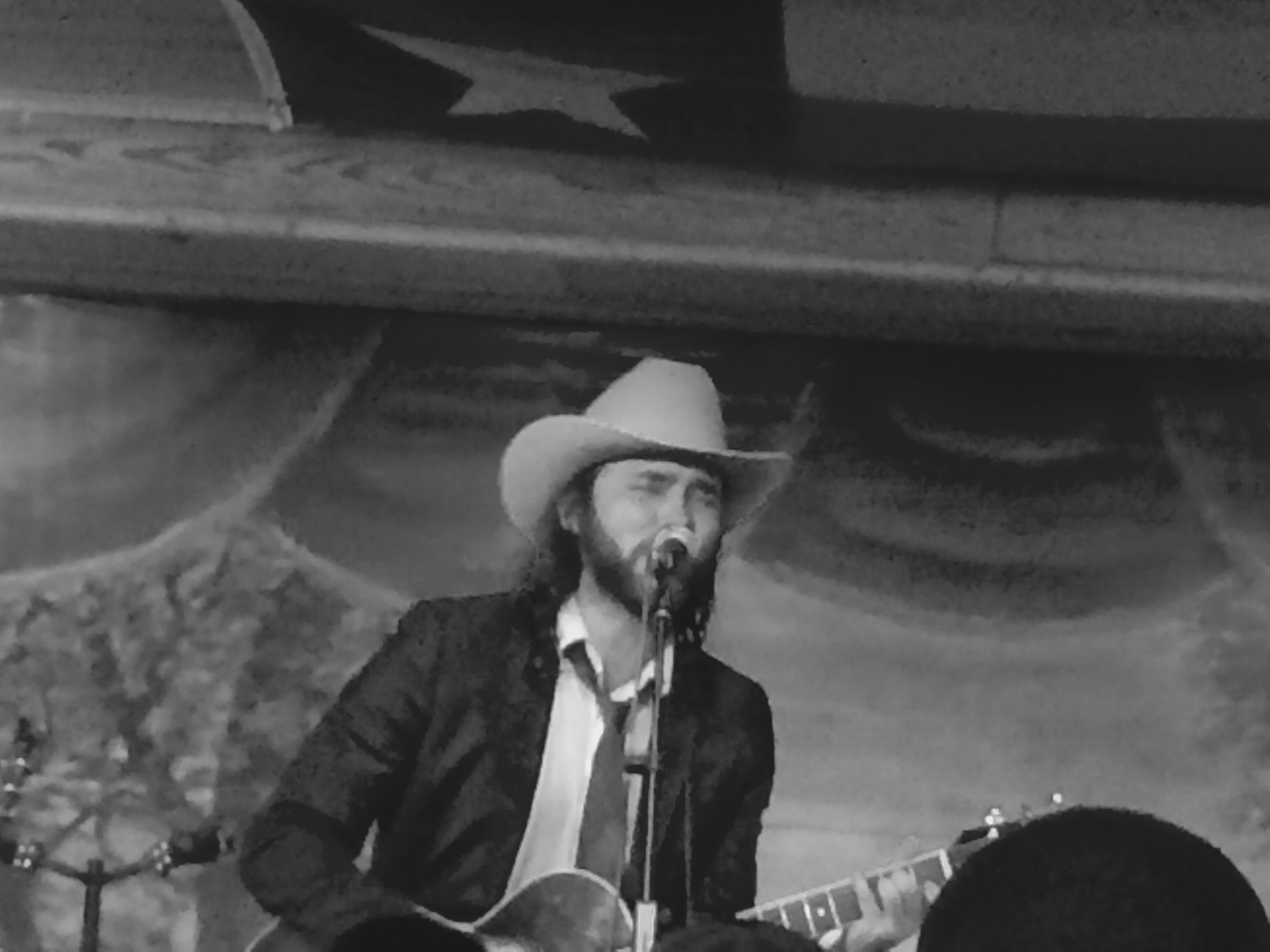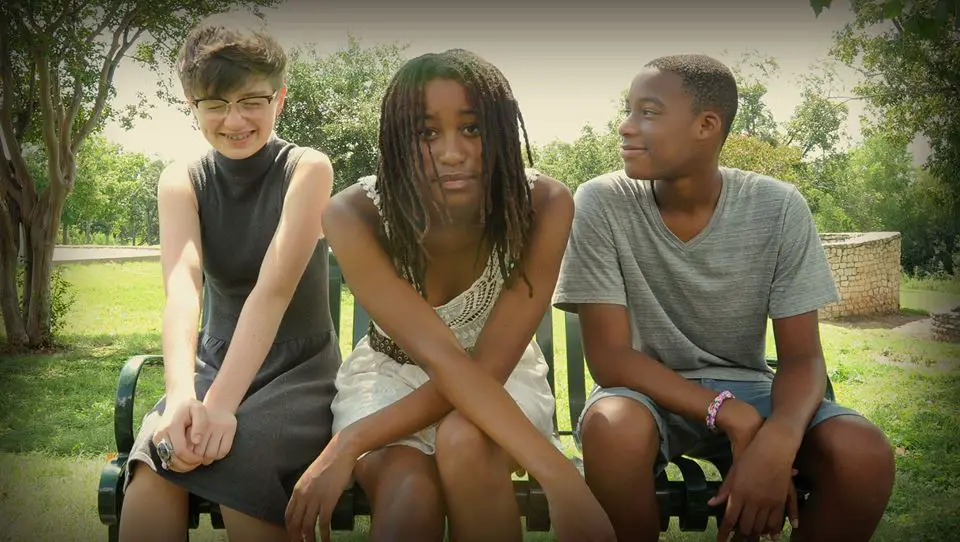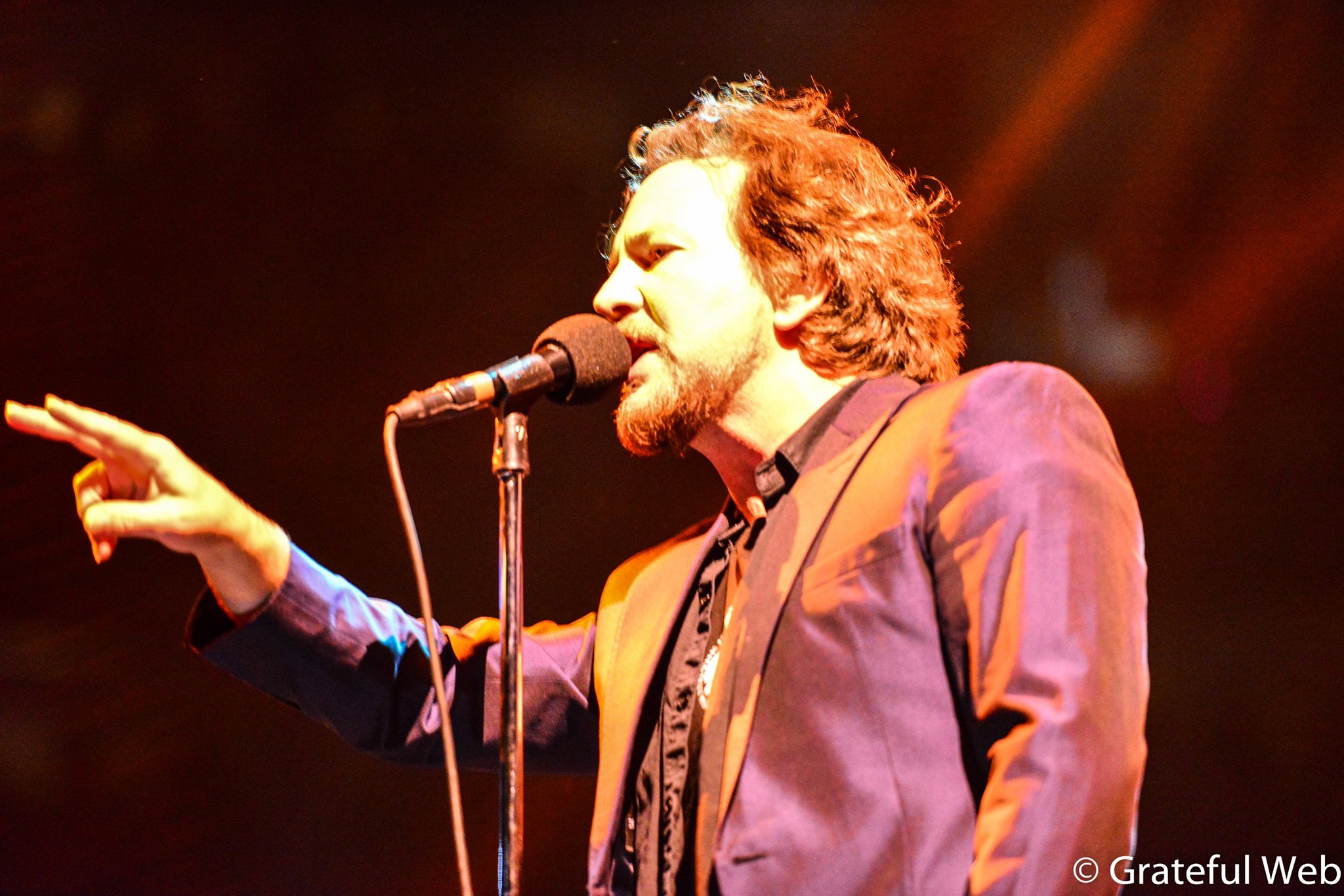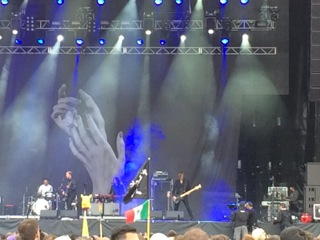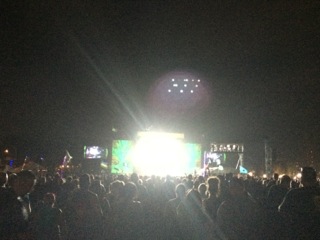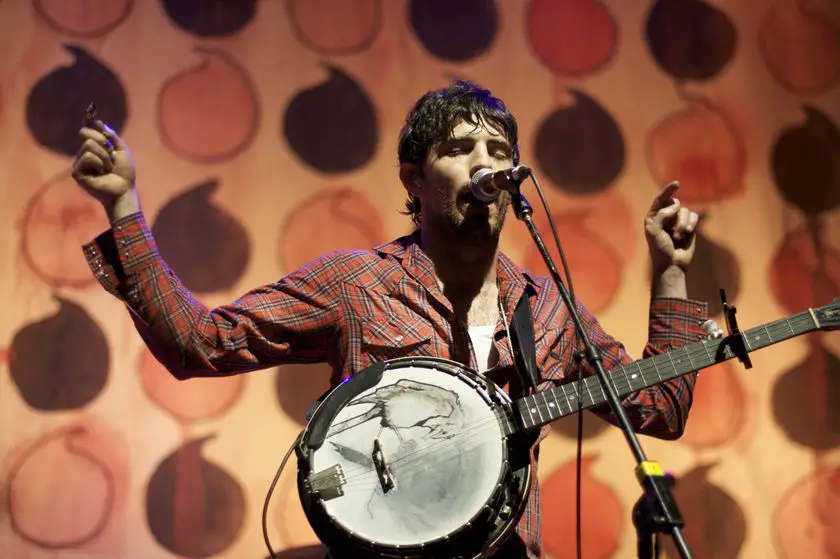It’s Saturday night, the last official night of SXSW on the infamous Rainey St. in Austin, Texas, and local musician Ricky Stein got the call for a 7:00 slot at the Lustre Pearl mere hours ago. A solo gig, nothing fancy, but when you’re playing to a packed house not to mention the thousands of people walking by, stopping, leaning against the rod iron bars and listening for a minute or ten, asking people around them—“Do you know who this is?” the pressure is on whether you acknowledge it or not. Some people rise to the challenge, others cower away. Ricky Stein falls into the former.You can feel the energy of the worn but zealous music-loving show-goers dwindling and wavering with the setting sun. The hum of chatter rises after the last band starts to pack up, and not too many people take notice of the guy in the plaid shirt and jeans, Lonestar in hand, starting to set up on stage. A couple minutes later, without introduction, he starts to sing, and all eyes are on him. It’s a simple set, a guy and his guitar, a couple harmonicas. He finds his girlfriend’s eye in the crowd and winks at her, a few fans yell requests from the crowd, and he derails from the set list to oblige. It’s casual, accessible. This is how Austin music is done.This set is a breath of fresh air after enduring a week of the 3.5-hour average line that snakes around corners and down blocks to get into some corporate-sponsored bash or surprise show at packed bars to hear artists who were paid the big bucks to show up. It’s nice to be away from the frustrated locals, or the disgruntled badge-holders, or the confused foreigners. This show, this singer—an unenhanced, unedited, untweeted, unmarketed show—whose music lines people up on the sidewalk to get in, this is the raw talent the festival is all about. This is why we’re called the Live Music Capital of the World. This is why we live here.He sounds a little like a lot of people—there’s something Van Morrison-esque about the way he’s got everyone footstomping and two-stepping on the dirt ground in front of the bar. There’s something Boz Scagg-y about the growly texture of his voice, something reminiscent of Bob Dylan in his soulful harmonica solos. Although he was heavily influenced by existing artists, the only person he really sounds like is himself.Music is meant to move us, and I glance around after the show—people hooting, hollering, still dancing, clapping, smiling—everyone is leaving happier than they were when they arrived. People are crowding around him to compliment, question, and inquire as to how they can get his music. It was just flat-out a good show, no bells and whistles. The lyrics were relatable, the melodies memorable, and there’s nothing we’re left wanting after the last song is over—except more.





